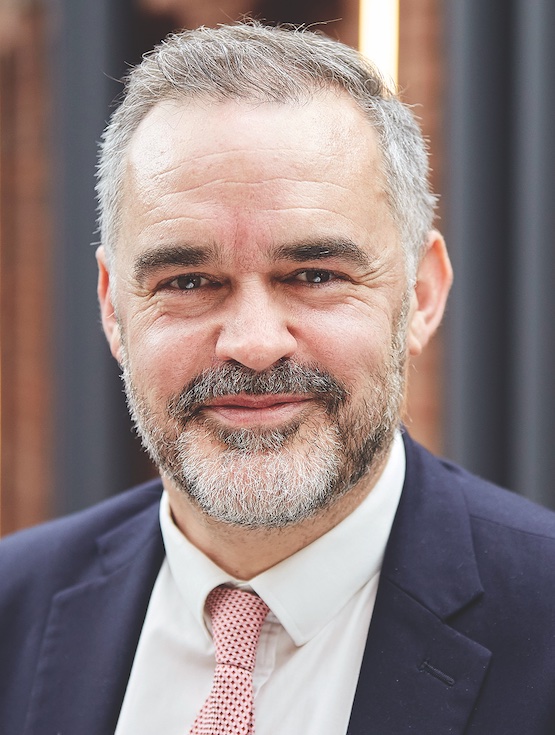Covid money is drying up, so politicians and leaders have choices to make
Balancing finances, operations, workforce and quality will require politicians to make hard choices and back managers faced with some very difficult decisions. We can’t hide behind our values and pretend these trade-offs don’t exist.

Nature doesn’t generally care much about the financial year, as a modern day King Canute would no doubt tell you. With more than 19,000 people across the UK in hospital with or because of Covid, and rising staff absences due to the virus, now is an odd time to declare the pandemic over. But that’s what the Treasury has done.
The money for the fight against Covid is drying up. In recent weeks, to take just two examples, funding for test and trace and free staff parking has been axed. To the challenges posed by this new approach to the pandemic, we can add a host of others.
Inflation – as well as hitting staff in their pockets – is whittling away NHS spending power. High-end efficiency savings are being demanded. Recovery plans are ambitious, and many leaders suggest they are unachievable. Finance directors are quietly warning of deficits next year across providers – in England at any case.
On NHS pay, the government says 2–3% might be affordable, but that’s it—despite inflation running at more than twice that level, staff satisfaction with pay plummeting, and recruitment and retention activity failing to plug staff shortages. Fewer than 30% of NHS workers think there are enough staff to do the job.
Staff morale isn’t in great shape, and managers are no exception. Two thirds of MiP members are thinking of leaving the NHS or seriously considered it in the last 12 months. Most are thinking about bringing forward their retirement. Fewer than 50% would now recommend NHS management as a career.
And the public are unhappy. Support for the NHS remains high but satisfaction with the service has hit a 25-year low, with staff shortages clearly seen as part of the problem.
But the Treasury’s heartstrings aren’t for tugging: the pandemic is ‘over’ and public sector austerity is back. So, without more money, what can be done? The NHS and politicians face choices. Here’s what we’d like them to do.
First, set the strategic tone and manage the polarity between direction and autonomy. While the centre must be both regulator and improver, there’s a clear risk of snapping back to ‘command and control’ and undermining emerging local systems before they even become statutory reality. MiP members want to hold on to the good things from the pandemic response, such as collaboration across systems and new ways of working, and this means giving local leaders and systems room for manoeuvre.
Secondly, managers’ work needs to be publicly recognised and supported, especially in tough times. As Amanda Pritchard has said, it’s managers who balance the finances, operations, workforce and quality dimensions of the service. This is difficult work, given the sensitive nature of the health service, done on our behalf by committed public servants. It needs to be honestly acknowledged, not hidden behind espoused values that pretend these trade-offs don’t exist.
Thirdly, a robust, funded workforce plan is needed to fill the bath and keep the plug in at the same time. Keeping staff is just as critical as recruiting new staff, working in new ways and improving workplace experience. Without firm intervention, staff shortages will just spiral further out of control. An inflation-matching pay rise for 2022–23 is an essential first step.
Finally, do the leg work on the management capacity needed to support and lead the workforce. In England, the review led by Gordon Messenger should help with standards and career management. But further work is needed on pay and conditions, the effective design of management jobs and better HR policies and systems to help managers to do their jobs. Further cuts to NHS administrative resources would be a mistake—they are already well below those in the French or German systems —but most members would support looking at how best to deploy management resources.
Everyone working in the NHS knows the pandemic isn’t over, whatever the Treasury likes to pretend. If the NHS is going to emerge from the next 12 months in robust shape, politicians and senior leaders need to make the hard choices and back managers facing some very tough decisions. To govern is to choose, after all.
- Jon Restell is chief executive of Managers in Partnership.
Related News
-

Strange ways, here we come
Creating a ‘neighbourhood NHS’ will demand a different mindset, unfamiliar ways of working and difficult decisions on finances and staffing. Middle managers as well as senior leaders will play a big part in making it happen, writes Nigel Edwards.
-

Labour’s reforms: a mixed bag for managers
Ahead of the ten-year plan, Wes Streeting and NHS leaders have been sketching out some ideas for NHS reform. Jon Restell and Rhys McKenzie explain what these initial proposals could mean for managers.
-

Jon Restell’s Leading Edge | Giving managers legitimacy is the key to making reform work
The false trade off between the frontline and everybody else has become a deep-seated belief in a two-tier workforce. The health secretary needs to unite all NHS staff and give managers permission, encouragement and the tools they need to get his reforms off the ground.